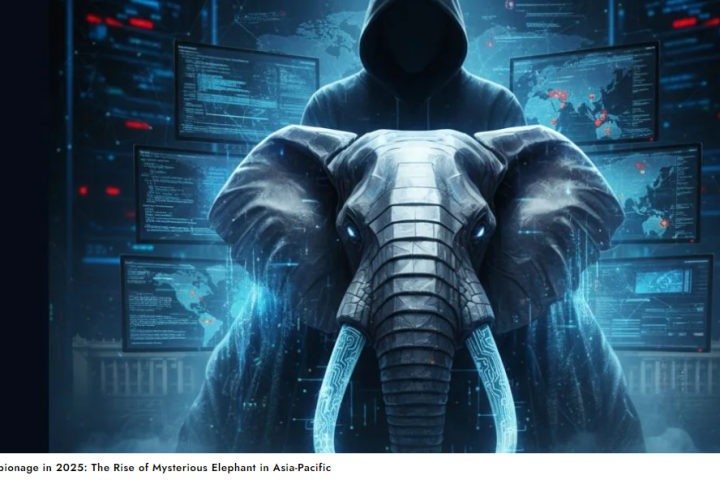In recent years, China’s government has taken steps to consolidate the authority of the Chinese Communist Party (CCP) over state institutions, a process that has drawn scrutiny for its implications on individual freedoms. At last year’s National People’s Congress, the State Council passed legislation reinforcing the CCP’s dominance over the Cabinet. This year, the release of a white paper titled “China’s National Security in the New Era” further outlined measures to strengthen party control, signaling a broader effort to centralize power under the leadership of President Xi Jinping.
The stated aim of these initiatives is to safeguard the CCP’s authority by preempting any challenges to its rule. However, the mechanisms put in place to achieve this goal have raised alarms among observers. A sprawling surveillance apparatus, combining traditional monitoring with advanced digital tools, has been deployed to track the activities of ordinary citizens, ensuring that dissent is identified and addressed swiftly.
The passage of the Organic Law has redefined the role of the State Council, mandating that it “resolutely uphold the authority of the party’s Central Committee and its unified leadership.” This legal shift effectively subordinates the government to the directives of the CCP, with Xi Jinping’s ideology serving as a guiding framework. Analysts note that this marks a significant departure from past practices, where the State Council held more nominal autonomy. Now, bureaucrats are expected to align daily decision-making with party priorities, a development that underscores the CCP’s tightening grip on governance.
The white paper on national security emphasizes “political security” as a core objective, with the CCP establishing a National Security Commission to oversee reforms. According to official statements, these reforms aim to modernize China’s security framework under Xi’s leadership. Yet, critics argue that this modernization has come at a steep cost to personal privacy, as the state has expanded its ability to monitor citizens through both conventional and technological means.
For many Chinese citizens, this heightened oversight translates into an inescapable web of surveillance. Police stations maintain detailed records on residents, with some, as reported by New York Times, using color-coded charts to categorize individuals based on their perceived political reliability. Officers patrol neighborhoods, listening in on conversations, while community volunteers and retirees are enlisted to report suspicious activities. Such methods, though traditional, create an atmosphere where citizens feel constantly watched.
Digital surveillance, however, has taken this monitoring to new heights. Internet activity—whether browsing, shopping, or posting on platforms like Baidu, Alibaba, or Tencent—is subject to government scrutiny. A 2023 report by Freedom House ranked China as the world’s most restrictive internet environment for the ninth consecutive year, citing pervasive data collection and censorship. Facial recognition cameras, now ubiquitous in public spaces, add another layer of oversight, leaving little room for anonymity.
The shift to a cashless society has further amplified the reach of digital surveillance. Mobile apps are used for nearly all transactions, from buying subway tickets to paying taxes, with each interaction linked to an individual’s identity. Data collected by private companies can be accessed by the government, enabling authorities to track behavior and identify potential dissenters. For many, this omnipresent monitoring has become a fact of life, with some citizens adapting by ignoring its implications or accepting it as inevitable, according to research published in The Conversation.
The impact of these policies is particularly acute in regions like Xinjiang and Tibet, where surveillance is intensified. In Xinjiang, the Integrated Joint Operations Platform (IJOP) app enables authorities to collect granular personal data, such as a person’s car color or height, and flag behaviors deemed suspicious, like using encrypted messaging apps. In Tibet, surveillance has escalated since last summer, with reports from Radio Free Asia indicating increased police presence and the recruitment of civilians, including delivery drivers, as auxiliary monitors. Mandatory apps, such as the National Anti-Fraud Centre, further integrate personal data into centralized systems.
The cumulative effect of these measures has created a climate of heightened control, where expressions of cultural identity or dissent are met with swift repercussions. Freedom House’s 2023 “Freedom on the Net” report described China’s internet environment as “profoundly oppressive,” noting that users face legal and extralegal consequences for activities as routine as sharing news or discussing religion. In minority regions, even moderate advocacy for cultural or linguistic rights can be criminalized.
As China continues to refine its national security framework, the balance between state control and individual autonomy remains a point of contention. While the CCP frames these measures as essential for stability, critics argue that the expansion of surveillance risks stifling personal freedoms and fostering a climate of fear. For now, the intricate system of monitoring—both digital and human—shows no signs of abating, leaving many to navigate an increasingly constrained reality.















